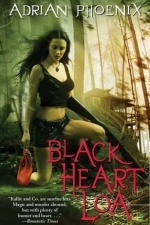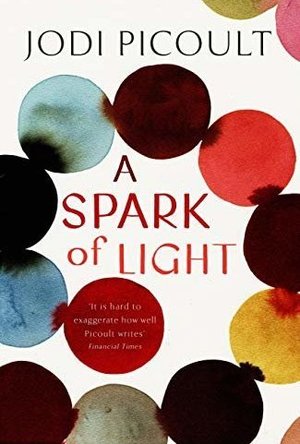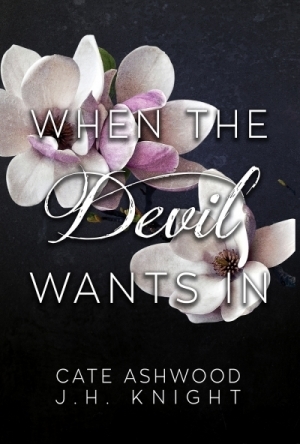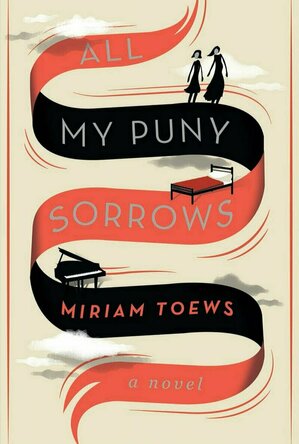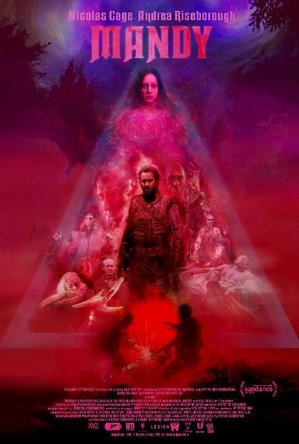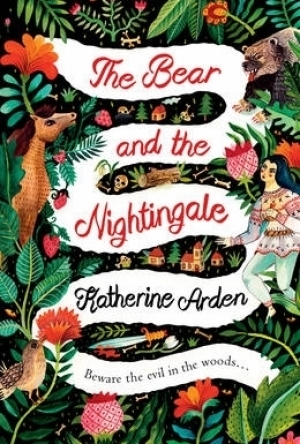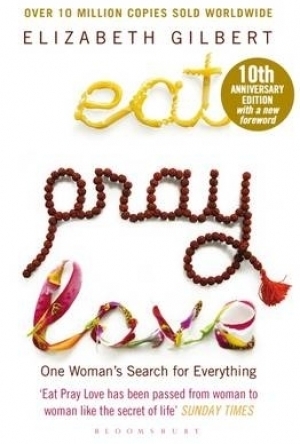Search
Search results
Goddess in the Stacks (553 KP) rated Black Heart Loa in Books
Sep 8, 2017
A rolicking fun ride through Louisiana
Black Heart Loa is actually the second in Phoenix’s Hoodoo series, the first being Black Dust Mambo. Even without reading the first one, Black Heart Loa is easy to follow, and the events of Black Dust Mambo are easily understood, without really having them rehashed to the reader. Part of that, I expect, is because Black Heart Loa is dealing with the fallout of the events of Black Dust Mambo, so things get explained in a natural progression in the book.
BHL was a rolicking fun ride through the swamps of Louisiana. I can’t speak for the accuracy of how the hoodoo belief system is represented, but most religious beliefs in urban fantasy get a vigorous twisting from the author, as miracles and magic become real in the fictional world. So I’m not terribly worried about the accuracy, as long as they’re not portrayed solely in a good or bad light. And in BHL there are both good and bad practitioners of hoodoo, illustrating the point that it’s not the religion that is inherently good or bad, but the person practicing it. So that moral quandary aside, I really, REALLY enjoyed this book. Kallie is a fun, ass-kicking, smart-talking protagonist, though I found myself wanting to know more about her best friend, a mambo-in-training.
I especially want to know more about a character who was introduced late in the book, but the ending of the book implies more books to come, and more focus on the character I’m intrigued by, so I’ll have to see if I can dig up more of this series. Amazon says this book is 2 of 2 in the series, but it was published in 2011 and I don't see any more in the series, which is sad. Goodreads mentions a third book, Black Moon Mojo, but I can't find any news about a release date.
You can find all my reviews at http://goddessinthestacks.wordpress.com
BHL was a rolicking fun ride through the swamps of Louisiana. I can’t speak for the accuracy of how the hoodoo belief system is represented, but most religious beliefs in urban fantasy get a vigorous twisting from the author, as miracles and magic become real in the fictional world. So I’m not terribly worried about the accuracy, as long as they’re not portrayed solely in a good or bad light. And in BHL there are both good and bad practitioners of hoodoo, illustrating the point that it’s not the religion that is inherently good or bad, but the person practicing it. So that moral quandary aside, I really, REALLY enjoyed this book. Kallie is a fun, ass-kicking, smart-talking protagonist, though I found myself wanting to know more about her best friend, a mambo-in-training.
I especially want to know more about a character who was introduced late in the book, but the ending of the book implies more books to come, and more focus on the character I’m intrigued by, so I’ll have to see if I can dig up more of this series. Amazon says this book is 2 of 2 in the series, but it was published in 2011 and I don't see any more in the series, which is sad. Goodreads mentions a third book, Black Moon Mojo, but I can't find any news about a release date.
You can find all my reviews at http://goddessinthestacks.wordpress.com
Haley Mathiot (9 KP) rated Battlemage in Books
Apr 27, 2018
Battlemage was so exciting. It held on tight and didn’t let go. I was hooked from the very first few sentences from the first chapter and from there it just got better. It was everything I’d hoped it would be. It had an exciting, well thought-out plot, complex and interesting characters, good writing, great humor, and amazing war-time magic. It had an interesting (subtle) religious and political commentary running through it that added dimension to the world. It made it more real. And it had a character that I had to really think about, really pay attention to, to figure out his true identity! I love that. I love a book that makes me think, and that surprises me.
I love good-guy/bad-guy magic. Magic that can take you to higher levels of selflessness and servant-hood and kindness, and that same magic can be used to pull you and everyone around you into filth and degradation. The Source is so powerful that, if used in the wrong hands, can completely break and ruin a person. And we see that in the battlemages. That’s my favorite kind of magic.
The narration was very good. Addis created a perfect voice for the personalities of the characters. He has superb accents and articulation, spoke clearly at a good pace, and took a book that was at 100% great and made it 200% great (which is exactly what the narrator should do! Add to the experience, not take away from it.)
The only thing about Battlemage I thought was slightly lacking was the very end. It was a little abrupt and open. Open in a good way, meaning it immediately demands a sequel. But I felt like the author was like “Hah! It’s over! bwahahahah!” rather than the kind of gentile ease away that leaves the reader feeling satisfied but still excited for what is to come. However I was still highly satisfied with the story, would totally read/listen to it again, and recommend it to anyone 18+.
I love good-guy/bad-guy magic. Magic that can take you to higher levels of selflessness and servant-hood and kindness, and that same magic can be used to pull you and everyone around you into filth and degradation. The Source is so powerful that, if used in the wrong hands, can completely break and ruin a person. And we see that in the battlemages. That’s my favorite kind of magic.
The narration was very good. Addis created a perfect voice for the personalities of the characters. He has superb accents and articulation, spoke clearly at a good pace, and took a book that was at 100% great and made it 200% great (which is exactly what the narrator should do! Add to the experience, not take away from it.)
The only thing about Battlemage I thought was slightly lacking was the very end. It was a little abrupt and open. Open in a good way, meaning it immediately demands a sequel. But I felt like the author was like “Hah! It’s over! bwahahahah!” rather than the kind of gentile ease away that leaves the reader feeling satisfied but still excited for what is to come. However I was still highly satisfied with the story, would totally read/listen to it again, and recommend it to anyone 18+.
ClareR (5879 KP) rated A Spark Of Light in Books
Feb 21, 2019
A thought-provoking, emotional novel
My first Jodi Picoult book, and what a way to start. This has had some extreme reviews - people who really enjoyed it, and others who hated it and considered it to be too 'preachy'. I didn't feel that way about it. I felt that it gave a measured representation to all sides of abortion: pro-choice and anti-abortion/ pro-life.
It showed that those who have abortions don't see it as a lifestyle choice, but as a last resort. That those who are pro-life believe that they are fighting for what they strongly believe in. And both of those views are valid. There will always be people who will not have abortions for religious reasons, and there will be those who have abortions because they believe it's the only option open to them - and this is well described in this book.
We also see the desperation of fathers who will do anything to protect their daughters - whether it's taking hostages in an abortion clinic, or trying to talk that same man down.
This book hasn't changed my stance on the subject, but I can see that both sides of the story have people who believe that they are right in what they do (even if that means killing people to save a life not yet begun) and Picoult represents them both well. The Authors Note at the end of the book is really interesting as well, and I would urge the reader to read this part. It goes in to her research, the people she talked to: she spoke to a lot of people, watched abortions and made sure that she spoke to those who represented all sides of the story.
I can see why Jodi Picoult has so many fans, her writing is so good - this is well worth reading and is very thought provoking.
Many thanks to Smashbomb for providing me with a copy of this book in their giveaway competition. It was a prize well worth winning!!
It showed that those who have abortions don't see it as a lifestyle choice, but as a last resort. That those who are pro-life believe that they are fighting for what they strongly believe in. And both of those views are valid. There will always be people who will not have abortions for religious reasons, and there will be those who have abortions because they believe it's the only option open to them - and this is well described in this book.
We also see the desperation of fathers who will do anything to protect their daughters - whether it's taking hostages in an abortion clinic, or trying to talk that same man down.
This book hasn't changed my stance on the subject, but I can see that both sides of the story have people who believe that they are right in what they do (even if that means killing people to save a life not yet begun) and Picoult represents them both well. The Authors Note at the end of the book is really interesting as well, and I would urge the reader to read this part. It goes in to her research, the people she talked to: she spoke to a lot of people, watched abortions and made sure that she spoke to those who represented all sides of the story.
I can see why Jodi Picoult has so many fans, her writing is so good - this is well worth reading and is very thought provoking.
Many thanks to Smashbomb for providing me with a copy of this book in their giveaway competition. It was a prize well worth winning!!
Merissa (12889 KP) rated When The Devil Wants In in Books
Jan 30, 2018
When The Devil Wants In by Cate Ashwood & J.H. Knight
When the Devil Wants In is a story that tells of John, a man firmly in the closet in his home town in the deep South. He lives next door to his very religious parents, and everyone thinks that he and his best friend, Chloe, will be married one day. Chloe is the only one who knows that John is gay, and provides his cover. Matt is the newbie to this police force, but is an experienced office from San Francisco. Matt wasn't in the closet, but feels it may be appropriate for Magnolia Ridge.
John is only supposed to be in his late twenties, but somehow came across as being a LOT older. As for Matt, it was hard to pin an age on him. Sometimes he seemed young, sometimes old. Although this story is told from both of their perspectives, it was hard to find much sympathy for John, and I have no idea why. There didn't seem to be much of a bond between the two of them until the end of the story. As for the mystery, there was a lot of build up, but the ending left me wanting more. Although we got the who, the how and why were never really discussed. There was no idea of what had happened to make the person 'snap' at that time.
Apart from that, the story was well written, with no editing or grammatical errors that disrupted my reading flow. The story was interesting, with a great cast of characters. For anyone who wanted a M/M Mystery, then I would definitely recommend this. Just because I found it slightly unsatisfying at the end doesn't mean everyone will!
* A copy of this book was provided to me with no requirements for a review. I voluntarily read this book, and my comments here are my honest opinion. *
Merissa
Archaeolibrarian - I Dig Good Books!
John is only supposed to be in his late twenties, but somehow came across as being a LOT older. As for Matt, it was hard to pin an age on him. Sometimes he seemed young, sometimes old. Although this story is told from both of their perspectives, it was hard to find much sympathy for John, and I have no idea why. There didn't seem to be much of a bond between the two of them until the end of the story. As for the mystery, there was a lot of build up, but the ending left me wanting more. Although we got the who, the how and why were never really discussed. There was no idea of what had happened to make the person 'snap' at that time.
Apart from that, the story was well written, with no editing or grammatical errors that disrupted my reading flow. The story was interesting, with a great cast of characters. For anyone who wanted a M/M Mystery, then I would definitely recommend this. Just because I found it slightly unsatisfying at the end doesn't mean everyone will!
* A copy of this book was provided to me with no requirements for a review. I voluntarily read this book, and my comments here are my honest opinion. *
Merissa
Archaeolibrarian - I Dig Good Books!
KatieLouCreate (162 KP) rated Frankenstein in Books
Mar 5, 2018
Contains spoilers, click to show
It's been a while since I read this book but I remember why I did and did not enjoy this book. Firstly, the book it worth the read. It may seem slow to start with but you do get rewarded in the end. It is just that, unfortunately, Victor Frankenstein is a very boring character. He is just so boring and, lets face it, a little bit fickle. He spent his life working towards this goal, leaving his family and loved ones behind, practically, all to be able to resurrect the dead back to life. He accomplishes it only to realise what an abomination he has created. So what does he do? He runs away.
The most interesting part about the book actually comes from the perspective of the monster himself. It is here where we see true voice, character, and emotion. We see the monsters side of things and realise he is not in fact a monster. He is a product of his surroundings. He was treated like a monster and so he became one.
To me, it spreads an important message about love and acceptance. The monster would not have become evil is Victor had remained with his creation and helped him instead of fleeing and leaving the monster, new to the big wide world, by himself.
Although I believe Mart was trying to give us a different, more religious message, about the dangers of man performing a woman's role of giving birth and how that is an abomination to mankind, I think the message I stated beforehand is better and stronger.
If you can get through Victor's boring and annoying personality then the book is worth the read. If not, then maybe just read the middle of the book-- from the monsters perspective, although it would probably seem a little weird and out of context without the rest of the story.
The most interesting part about the book actually comes from the perspective of the monster himself. It is here where we see true voice, character, and emotion. We see the monsters side of things and realise he is not in fact a monster. He is a product of his surroundings. He was treated like a monster and so he became one.
To me, it spreads an important message about love and acceptance. The monster would not have become evil is Victor had remained with his creation and helped him instead of fleeing and leaving the monster, new to the big wide world, by himself.
Although I believe Mart was trying to give us a different, more religious message, about the dangers of man performing a woman's role of giving birth and how that is an abomination to mankind, I think the message I stated beforehand is better and stronger.
If you can get through Victor's boring and annoying personality then the book is worth the read. If not, then maybe just read the middle of the book-- from the monsters perspective, although it would probably seem a little weird and out of context without the rest of the story.
Kristy H (1252 KP) rated All My Puny Sorrows in Books
Feb 13, 2018
This was a tough novel to read. Which isn't to say it's bad. It's not. At all. In fact, it's lovely and lyrical and beautiful. It's just tough. It chronicles the tale of two sisters, Yolandia (Yoli) and her older sister, Elfrieda (Elf). Yoli grows up in the shadow of the talented Elf, who is a famous pianist and an amazing free spirit. Yoli adores her from a young age, as Elf is the only one she knows who has the will and strength to fight against their religious Mennonite upbringing.
As adults, it seems like Elf has it all together - a loving partner, a successful career as a famous pianist, while Yoli is struggling - she's divorced (she's working on number two) and working to stay afloat as an author and raise her two kids.
However, underneath, we learn Elf has a great sadness, as the book covers her suicide attempts, including one as she is about to embark on a concert tour. Yoli rushes to her sister's side, but struggles to help her.
Overall, as I stated, the book is lovely, despite its sad subject matter (my heart hurts that apparently much of this is autobiographical for Toews). Having lost a loved one to suicide, reading a lot of this was very hard, indeed. I was very drawn to Yoli - she is a well-written character and you find yourself rooting for her, as she deals with her sister, her mother, and her crazy life. Even fragile Elf is beautiful. The girls' mother is quite a character; I loved her deeply. She was a trip.
I had to power through this one - sometimes all the bad things happening were overwhelming. The strength of character pulled me through it. I found myself a little frustrated at times ("why am I reading this?!"), but it truly is lovely, and if you've dealt with mental illness in any way (either yourself or with someone you love), while it will hurt, it's also a worthwhile read.
As adults, it seems like Elf has it all together - a loving partner, a successful career as a famous pianist, while Yoli is struggling - she's divorced (she's working on number two) and working to stay afloat as an author and raise her two kids.
However, underneath, we learn Elf has a great sadness, as the book covers her suicide attempts, including one as she is about to embark on a concert tour. Yoli rushes to her sister's side, but struggles to help her.
Overall, as I stated, the book is lovely, despite its sad subject matter (my heart hurts that apparently much of this is autobiographical for Toews). Having lost a loved one to suicide, reading a lot of this was very hard, indeed. I was very drawn to Yoli - she is a well-written character and you find yourself rooting for her, as she deals with her sister, her mother, and her crazy life. Even fragile Elf is beautiful. The girls' mother is quite a character; I loved her deeply. She was a trip.
I had to power through this one - sometimes all the bad things happening were overwhelming. The strength of character pulled me through it. I found myself a little frustrated at times ("why am I reading this?!"), but it truly is lovely, and if you've dealt with mental illness in any way (either yourself or with someone you love), while it will hurt, it's also a worthwhile read.
Andy K (10823 KP) rated Mandy (2018) in Movies
Nov 2, 2018
Unique storytelling and visual splendor at its finest!
You never know what to think when you start a movie starring Nicolas Cage. He's almost a mockery of himself these days with so many unusual, crappy over-the-top performances, I was skeptical of this one to say the least.
I don't remember where I even heard of this film. Must have been one of the movie sites I frequent. I actually decided to purchase having not watched first, something I rarely do indeed.
To say this is a story of revenge doesn't really do it justice. In fact any words I can place here in this review won't really explain. When Nicolas Cage and his wife are kidnapped by a gang of hooligan, crazed hippie religious freaks, that is just the beginning. After some bad things happen, Cage is changed forever as he embarks down the long tunnel of revenge and vengeance for blood.
Normally, technical prowess, or saying the film "looks great" doesn't impress me since, in the age of CGI, pretty much every movie looks flawless these days.
Something about the art direction, cinematography, editing, haunting musical score, costumes and gory brutal make-up effects come together to create a truly unique film.
I can see influences from Sam Raimi's Army of Darkness, Rob Zombie's House of 1,000 Corpses and even Lars von Trier's Antichrist at times and even elements from Darren Aronofsky's Mother! or Clive Barker's Hellraiser.
The film is definitely not for everyone. I would predict others rating this film from 1 to 10 (like Mother!) but would have to admit you had never seen anything like it. Director Panos Cosmatos is one I will have to keep an eye on.
Please watch Mandy and let me know what you think whether you agree or disagree. I'd be very interested to hear and debate with you.
I don't remember where I even heard of this film. Must have been one of the movie sites I frequent. I actually decided to purchase having not watched first, something I rarely do indeed.
To say this is a story of revenge doesn't really do it justice. In fact any words I can place here in this review won't really explain. When Nicolas Cage and his wife are kidnapped by a gang of hooligan, crazed hippie religious freaks, that is just the beginning. After some bad things happen, Cage is changed forever as he embarks down the long tunnel of revenge and vengeance for blood.
Normally, technical prowess, or saying the film "looks great" doesn't impress me since, in the age of CGI, pretty much every movie looks flawless these days.
Something about the art direction, cinematography, editing, haunting musical score, costumes and gory brutal make-up effects come together to create a truly unique film.
I can see influences from Sam Raimi's Army of Darkness, Rob Zombie's House of 1,000 Corpses and even Lars von Trier's Antichrist at times and even elements from Darren Aronofsky's Mother! or Clive Barker's Hellraiser.
The film is definitely not for everyone. I would predict others rating this film from 1 to 10 (like Mother!) but would have to admit you had never seen anything like it. Director Panos Cosmatos is one I will have to keep an eye on.
Please watch Mandy and let me know what you think whether you agree or disagree. I'd be very interested to hear and debate with you.
Cat Goddess Freyja (16 KP) rated The Bear and the Nightingale in Books
Dec 5, 2018
Fantastic Read
Contains spoilers, click to show
I loved reading this book. Since reading it, a few weeks ago, it has become the first book that I recommend to someone looking for a good read. The author has brought her characters alive in a beautiful and alluring way. The story is based in Russia with a country noble's family being the main focus. The story itself, is a mixture of a coming of age story- in which the young main character, Vasya, discovers her place in the world- a fairy tale- a mythical snow demon who can only be calmed by a 'sacrificial' woman, who in turn fights with the snow demon against his evil brother- and a religious historical fiction- there is a strong opposition between Vasya, who believes strongly in the magic and old ways of her village, and a christian priest who comes to 'correct' their pagan beliefs and steer them towards God. There is a touch of romance, but it is not overwhelming and is charming in its own way. The characters come across as natural human beings/ mythical beings, and their choices in the story are logical and works well with whatever conflict they face. My absolute favorite thing that the author, Katherine Arden, did, however was her word choice. Karherine studied Russian in school, and knows quite a bit about its culture and language. A brilliant choice on her part, was recognizing that many of her readers may not be as familiar with the Russian language and culture as she is. So, to keep the feel of Russia alive in her book, she took the time to teach her characters beliefs to the reader, and come up with words that sound close to their Russian counterparts but are easy to pronoun for readers who don't know Russian. This is a very thoughtful fiction book and one I recommend for anyone who wants their imagination to shine.
Hazel (1853 KP) rated On the Origin of Findo Gask in Books
Dec 14, 2018
<i>I received this book for free through Goodreads First Reads.</i>
“Sick, twisted, blasphemous, wrong and very, very funny.” That is how this book, <i>On the Origin of Findo Gask</i> by David McCreight, is described on the back cover. But how accurate is it? “Blasphemous”? Most definitely. “Very, very funny”? Not so much. Although it is obvious that there is an attempt a humour, it is too “sick” and “twisted” for it to be anywhere near hilarious.
Findo Gask is a rather unattractive sixteen-year-old living in the Scottish Highlands. The narrative, recounted from his point of view, alternates between present day and an account of past events. Findo was once a child prodigy until he began questioning religion openly in church. In order to get back at the Christians, who thought he was possessed by demons, he establishes the Darwin Terrorist Organisation along with Cousin Dan. This, however, eventually gets rather out of hand. Now Findo is living with his Gran and his Mum is in hospital with a mysterious illness. He also believes he has sold the universe.
The fact that Findo is a stereotypical, Scottish, working class teenager makes the amount of bad language almost acceptable; although, to tell the complete truth, it did border on excessive.
At first there did not seem to be much of a plot, but once the past and present join up it is possible to connect all the events included in the story, which results in a considerably explosive ending.
As everyone’s take on humour is different there will undoubtedly be people who love this book. It would not be fair to deliberately put people off from reading <i>On the Origin of Findo Gask</i>, yet at the same time it is not recommended for the easily offended readers, particularly those with strict religious principles and a dislike for foul language.
“Sick, twisted, blasphemous, wrong and very, very funny.” That is how this book, <i>On the Origin of Findo Gask</i> by David McCreight, is described on the back cover. But how accurate is it? “Blasphemous”? Most definitely. “Very, very funny”? Not so much. Although it is obvious that there is an attempt a humour, it is too “sick” and “twisted” for it to be anywhere near hilarious.
Findo Gask is a rather unattractive sixteen-year-old living in the Scottish Highlands. The narrative, recounted from his point of view, alternates between present day and an account of past events. Findo was once a child prodigy until he began questioning religion openly in church. In order to get back at the Christians, who thought he was possessed by demons, he establishes the Darwin Terrorist Organisation along with Cousin Dan. This, however, eventually gets rather out of hand. Now Findo is living with his Gran and his Mum is in hospital with a mysterious illness. He also believes he has sold the universe.
The fact that Findo is a stereotypical, Scottish, working class teenager makes the amount of bad language almost acceptable; although, to tell the complete truth, it did border on excessive.
At first there did not seem to be much of a plot, but once the past and present join up it is possible to connect all the events included in the story, which results in a considerably explosive ending.
As everyone’s take on humour is different there will undoubtedly be people who love this book. It would not be fair to deliberately put people off from reading <i>On the Origin of Findo Gask</i>, yet at the same time it is not recommended for the easily offended readers, particularly those with strict religious principles and a dislike for foul language.
Sarah (7800 KP) rated Eat Pray Love: One Woman's Search for Everything in Books
Nov 18, 2019
Pretentious and selfish
I really wanted to like this book. It sounded like it'd have a lot of motivational thinking and empowerment for single women, but in fact it just turned out terribly pretentious and was basically just one woman's selfish and rather self centred journey.
This book is split into 3 parts: Italy (Eat), India (Pray) and Indonesia (Love). I fairly enjoyed the first part in Italy, as all Liz does is eat the entire time she's there and who doesn't love Italian food? And it also featured a lot of decent and moving thinking and a lot of this related to how I've been feeling over the past year, so I really clicked with this
However it's India and Indonesia that I have major issues with. Firstly I'm not a religious or spiritual person at all, it's just not for me although I have no issues with people that do believe, that's your choice. My problem is that the second and third parts of this book virtually shove religion and spirituality down your throat. And not in a hesitant good way, more in a preaching condescending way that irritates like hell very quickly. I quickly started to skim read these chapters as I couldn't deal with Liz's pretentious ramblings. This entire book is full of her selfish ideas and notions, and at the end I didnt find this in the slightest bit motivational and I didn't feel like Liz learned much either despite her proclamations otherwise. I really didn't find Liz an endearing or lovable person, despite the fact that everyone she encounters in her story appears to (which is debatable).
Maybe I went into this book expecting the wrong things, but aside from the first third and the odd thought or sentence throughout the book that made me think "that's so true!", I really didnt enjoy this at all.
This book is split into 3 parts: Italy (Eat), India (Pray) and Indonesia (Love). I fairly enjoyed the first part in Italy, as all Liz does is eat the entire time she's there and who doesn't love Italian food? And it also featured a lot of decent and moving thinking and a lot of this related to how I've been feeling over the past year, so I really clicked with this
However it's India and Indonesia that I have major issues with. Firstly I'm not a religious or spiritual person at all, it's just not for me although I have no issues with people that do believe, that's your choice. My problem is that the second and third parts of this book virtually shove religion and spirituality down your throat. And not in a hesitant good way, more in a preaching condescending way that irritates like hell very quickly. I quickly started to skim read these chapters as I couldn't deal with Liz's pretentious ramblings. This entire book is full of her selfish ideas and notions, and at the end I didnt find this in the slightest bit motivational and I didn't feel like Liz learned much either despite her proclamations otherwise. I really didn't find Liz an endearing or lovable person, despite the fact that everyone she encounters in her story appears to (which is debatable).
Maybe I went into this book expecting the wrong things, but aside from the first third and the odd thought or sentence throughout the book that made me think "that's so true!", I really didnt enjoy this at all.
